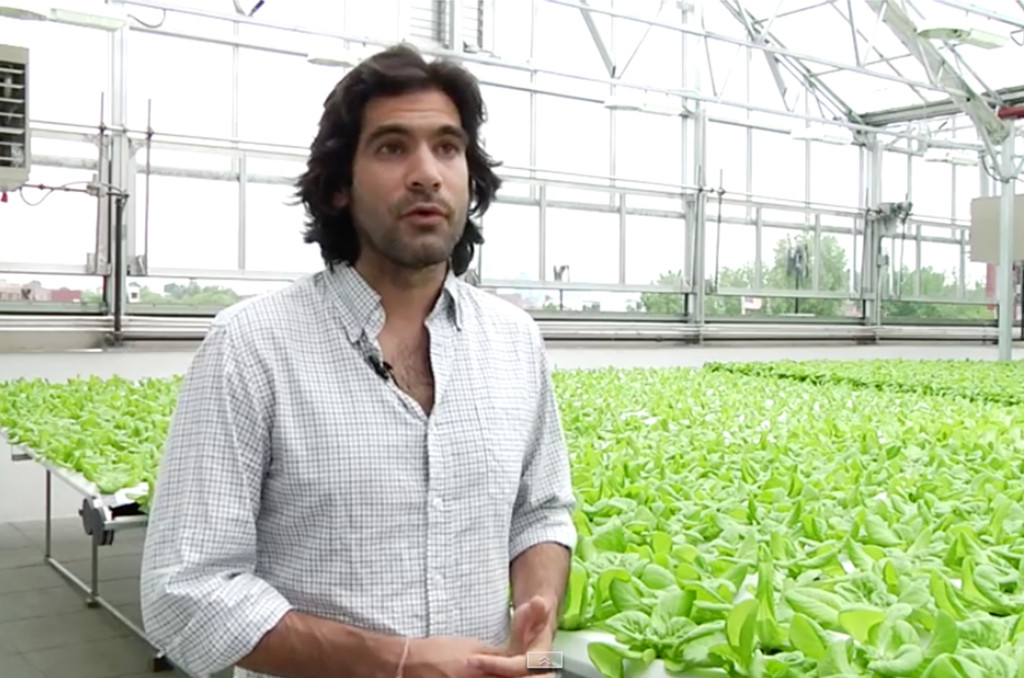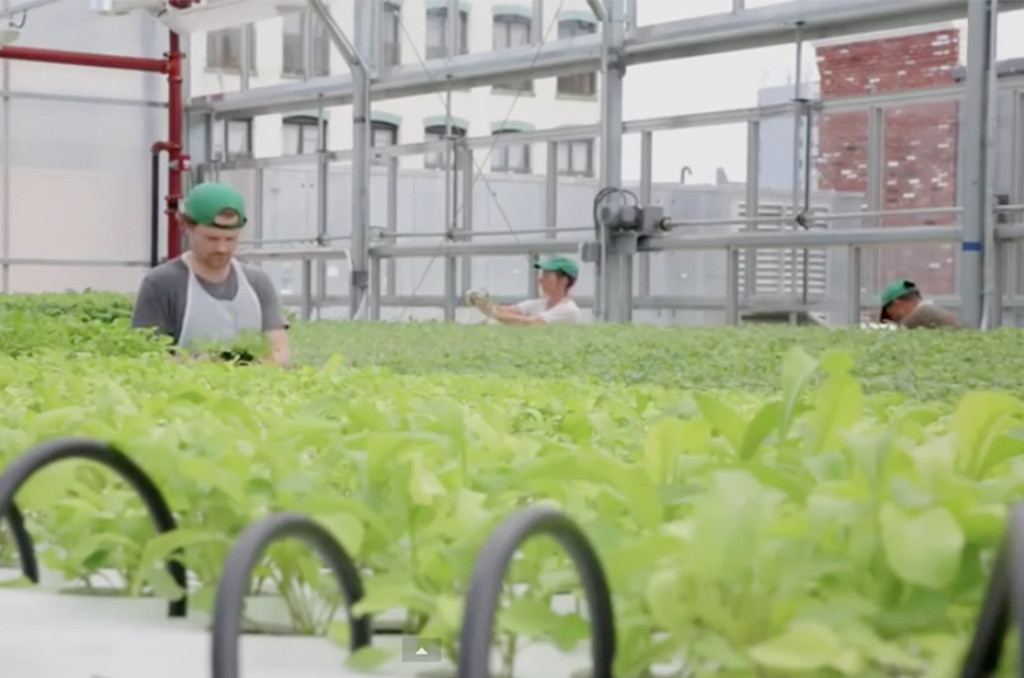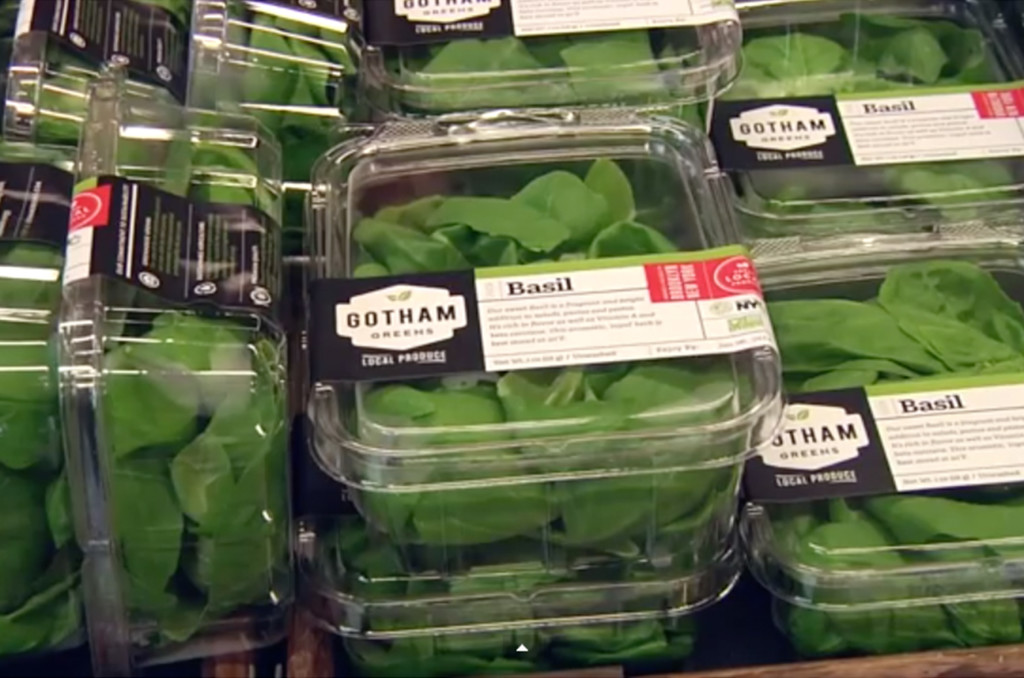hungry for acreage

Gotham Greens co-founder + CEO Viraj Puri || video frame from Made in Brooklyn
We’ve been keeping an eye on Gotham Greens since the rooftop farming pioneer opened its first commercial greenhouse in 2010. The Brooklyn-based company’s 15,000 square foot (0.3-acre) flagship farm, in Brooklyn’s Greenpoint neighborhood, yields 100 tons of leafy greens annually atop a warehouse building. In 2013 Viraj Puri, the company’s savvy co-founder and CEO, struck a deal with Whole Foods Market to open a second rooftop greenhouse – 20,000 square feet (0.5-acre) – atop the supermarket’s Gowanus, Brooklyn store. This year Gotham Greens plans to open another hydroponic rooftop farm in Jamaica, Queens, which will bring the company’s New York City acreage to 95,000 square feet (2.2-acres)! Who would have guessed that this scale of urban cultivation was possible?

Rooftop farmers || video frame from Made In Brooklyn
“In cities we don’t have a lot of arable land, we don’t have a lot of fertile soil, but one vastly underutilized resource we do have is unused rooftop space,” said Puri in a November 2014 episode of TechCrunch TV’s Built in Brooklyn. The CEO and his co-founders Eric Haley and Jennifer Nelkin Frymark have succeeded in meeting the local demand for fresh, responsibly-produced food using sustainable agriculture techniques. Rainwater harvesting, re-circulating hydroponics, integrated pest management (IPM) and photovoltaics are just a few of the tools the team deploys to bring viable urban agriculture to New York City.

Rooftop basil sold downstairs at Whole Foods Market Gowanus || video frame from Made In Brooklyn
Which other cities contain building stock large and strong enough to support commercial-scale hydroponic greenhouses? Many older cities like Philadelphia, Pittsburgh, San Francisco and of course Chicago (which is slated to receive a 75,000 square foot Gotham Greens rooftop farm for a new Method Products factory) fit the bill. These are cities in which retrofit projects are likely to continue appearing. In terms of new construction, it’s likely that companies beyond Whole Foods Market and Method Products will consider integrating rooftop farms into designs for future buildings. Row farms may be considered for these new construction projects, but if high, predictable year-round yields are a priority, it’s likely that hydroponic greenhouses will be utilized.
Let’s keep an eye on the sky in our own cities to see what skyline infrastructure blossoms in the seasons to come. And remember, if you see rooftop produce at a market near you, be sure to support your local skyline farmers by buying their greens!
 EAT UP
EAT UP